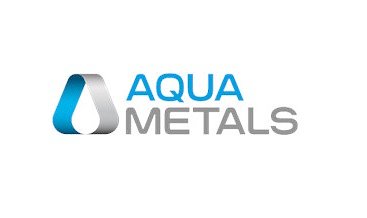
Aqua Metals Bets on Sustainable Recycling as Battery Demand Surges
As the electric vehicle revolution accelerates, Aqua Metals is pioneering a closed-loop battery recycling process. Can its innovative technology and strategic partnerships translate into profitability in a rapidly evolving market?
Aqua Metals Bets on Sustainable Recycling as Battery Demand Surges
Reno, Nevada – November 8, 2025 – Aqua Metals (NASDAQ: AQMS) is preparing to share an update on its progress in the burgeoning battery recycling market next week, as the demand for critical minerals intensifies and the pressure mounts for sustainable solutions. The company, based in Reno, Nevada, is positioning itself as a pioneer in the circular economy, utilizing its patented AquaRefining™ technology to extract valuable materials from end-of-life lithium-ion batteries. But scaling operations and achieving profitability in a competitive landscape remains a significant challenge.
With the electric vehicle (EV) revolution gaining momentum and the deployment of large-scale energy storage systems increasing, the demand for lithium, nickel, cobalt, and other critical minerals is soaring. Traditional mining operations are facing increasing scrutiny due to environmental concerns and supply chain vulnerabilities. This creates a fertile ground for battery recycling companies like Aqua Metals, which aims to close the loop on critical material supply and reduce reliance on virgin resources.
“The current reliance on mining creates significant environmental and geopolitical risks,” explains an industry analyst following the battery recycling sector. “Companies that can reliably and sustainably recover these materials from end-of-life batteries will be crucial to building a resilient supply chain.”
AquaRefining™: A Sustainable Approach
Aqua Metals’ AquaRefining™ technology differentiates itself from many competing processes through its commitment to sustainability. Unlike traditional pyrometallurgical methods that often involve high temperatures and hazardous chemicals, AquaRefining™ utilizes an aqueous solution and electrochemistry to selectively extract metals without generating harmful emissions. The company emphasizes this is a zero-emission, closed-loop process.
“We believe our technology offers a significant advantage in terms of environmental impact and resource efficiency,” states a source within Aqua Metals. “We are focused on minimizing our carbon footprint and creating a truly sustainable recycling solution.”
Independent assessments from research firms like BloombergNEF and Wood Mackenzie corroborate the potential of Aqua Metals’ approach. Reports highlight the environmental benefits of AquaRefining™ and its alignment with the growing demand for responsible sourcing of critical minerals.
The Competitive Landscape
However, Aqua Metals isn’t operating in a vacuum. The battery recycling market is becoming increasingly crowded, with established players like Redwood Materials, Li-Cycle, and Ascend Elements vying for market share. Each company is pursuing different technological approaches and business strategies.
“The competition is intense,” says another analyst specializing in battery technology. “Companies are racing to scale their operations and secure long-term contracts with battery manufacturers and automotive companies.”
Redwood Materials, backed by significant investment, is focused on building a closed-loop recycling system for its automotive partners. Li-Cycle offers a hydrometallurgical process with a strong presence in North America and Europe. Ascend Elements utilizes a direct precipitation method and has also secured substantial funding.
Aqua Metals differentiates itself through its commitment to a sustainable, non-toxic process. However, translating this advantage into a competitive edge requires significant investment and efficient scaling.
Scaling Challenges and Financial Hurdles
According to recent financial filings, Aqua Metals has been steadily increasing its revenue but remains unprofitable. The company has been investing heavily in expanding its recycling capacity and securing long-term contracts. Debt levels are manageable, but the company relies on continued access to capital to fund its growth.
“Scaling operations is a major challenge for all battery recycling companies,” explains a financial analyst following Aqua Metals. “Building and operating large-scale recycling facilities requires significant capital investment and technological expertise.”
The company faces the dual challenge of securing sufficient feedstock—spent batteries—and optimizing its recycling process to maximize material recovery and minimize costs.
“Access to consistent, high-quality feedstock is crucial,” states a source familiar with the industry. “Recycling companies need to establish reliable collection networks and partnerships with battery manufacturers and consumers.”
The Regulatory Landscape & Future Outlook
The regulatory environment is also playing a crucial role in driving the growth of the battery recycling industry. Governments around the world are implementing policies to encourage responsible battery management and promote circular economy principles.
The U.S. Environmental Protection Agency (EPA) has stringent regulations on hazardous waste and battery disposal, which favor sustainable recycling methods like AquaRefining™. The Department of Energy (DOE) also offers grants and funding to support innovative recycling technologies.
Looking ahead, the demand for battery recycling is expected to surge in the coming years. Analysts predict exponential growth in the market, driven by the increasing adoption of EVs and energy storage systems.
Aqua Metals’ success will hinge on its ability to scale operations efficiently, secure long-term contracts, and maintain its commitment to sustainability. The company's upcoming update next week is expected to provide further insights into its progress and future outlook.
Whether Aqua Metals can successfully navigate the challenges of a rapidly evolving market and emerge as a leader in the battery recycling industry remains to be seen. However, its innovative technology and commitment to sustainability position it well to capitalize on the growing demand for responsible material sourcing and circular economy solutions.
